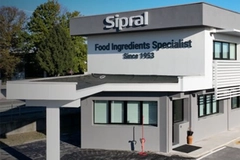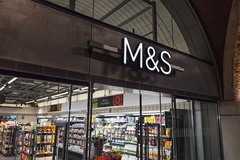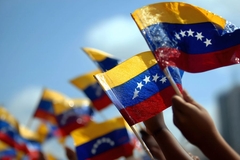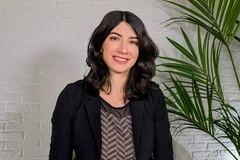
- Industry news
Industry news
- Category news
Category news
- Reports
- Key trends
- Multimedia
- Journal
- Events
- Suppliers
- Home
- Industry news
Industry news
- Category news
Category news
- Reports
- Key trends
- Multimedia
- Events
- Suppliers
Olive oil fraud: Experts discuss climate, supply chain and counterfeiting challenges

Olive oil is now at the center of a global fraud crisis as climate change shrinks harvests and elevates prices, leading to increased incentive for criminal deception. From counterfeit labels to oils diluted with cheaper vegetable fats, fraudsters exploit regulatory gaps and consumer trust, while authorities scramble to keep pace.
According to the EU’s Alert and Cooperation Network (ACN), 130 official notifications related to olive oil were recorded last year, with 15% confirmed as cross-border fraud cases. The most common violations included dilution with cheaper oils (62%), mislabelling (15%), and false claims of higher-grade quality, such as “extra virgin” (10%).
Food Ingredients First takes a deep drive into olive oil fraud with Arsen Khachaturyants, CEO of Italy-based olive oil company Arsenio, Sarah Fulton Vachon, founder of UK-based olive oil brand Citizens of Soil, and food fraud expert Dr. John Spink, director of the Food Fraud Prevention Academy, US, to unwrap the olive oil sector vulnerabilities and prevention strategies to curb the fraud.
Khachaturyants says olive oil has become a target market for fraud due to its high demand and prices, which lead to high margins.
“Fraudsters are taking advantage of the demand for an expensive product, especially when it has an ‘organic’ label. Increasingly climate-conscious consumers mean there’s an uptick in demand for organically produced food, including olive oil.”
“Importantly, production processes that include organic farming practices are expensive, so profit margins are generally tighter: Authentic producers spend more money producing high-quality olive oil that has a justified bigger price tag.”
 Climate-conscious consumers, high demand and prices make organic olive oil a prime target for fraud, says Khachaturyants.
Climate-conscious consumers, high demand and prices make organic olive oil a prime target for fraud, says Khachaturyants.
Olive oil industry vulnerabilities
Olive oil — especially extra virgin — is one of Europe’s most fraud-prone foods, driven by its high value and costly, labor-intensive production. In 2023, authorities confiscated 380 metric tons of illegal olive oil worth over €2 million(US$ 2.3 million) in Italy, states the Central Inspectorate for the Protection of Quality and Fraud Repression of Agri-food Products.
As per the ACN report, in 2023,17% of label checks and 34% of category checks on olive oil were found to be non-compliant.
Khachaturyants explains that fraudsters make huge profits by “cutting corners” in production. They mix what they’re marketing as ‘extra virgin olive oil’ with cheaper oils to slash the overall cost of production.
“Fraudsters are paying significantly less by doctoring the process with cheaper oils, but still reaping the benefits from customers willing to pay high prices for an undetected false product.”
Spink says that before checking if such fraud has happened, companies or authorities start by looking at how weak or exposed a system is to crime, a process called vulnerability assessment.
“One step before that is to prioritize products where crime has been detected, causing economic and/or public health problems. In some cases, there are regulatory requirements for countermeasures or control systems.”
“In other situations, the enterprise (business, agency, customs, etc.) determines the level of vulnerability within its risk tolerance.”
These assessments cover everything from individual products to global exports. “A key point is that system weaknesses are qualitative and can be observed. Many of these weaknesses can be quickly and efficiently addressed,” he adds.
Regulatory overview
Khachaturyants notes that countries that lack strict regulations regarding labeling allow fraudsters to sell more of their products on supermarket shelves.
“They can still slap on ‘extra virgin olive oil’ labels even if their oil has only 1% of this. Unfortunately, an international standard for stricter olive oil regulations doesn’t exist yet, which means it’s a rising problem in parts of the world.”
 Consumers should look for ‘extra virgin’ on the olive oil label, terms like ‘light’ or ‘pure’ are deceptive, says Vuchon.However, he notes that authorities have managed to clamp down on this in Europe. “Producers must prove that their manufacturing processes comply with strict regulations that allow them to market their oil as ‘organic’ and ‘extra virgin.’”
Consumers should look for ‘extra virgin’ on the olive oil label, terms like ‘light’ or ‘pure’ are deceptive, says Vuchon.However, he notes that authorities have managed to clamp down on this in Europe. “Producers must prove that their manufacturing processes comply with strict regulations that allow them to market their oil as ‘organic’ and ‘extra virgin.’”
Detection tools: From labs to taste panels
When approaching fraudulent practices, Khachaturyants says chemical analysis and verifying markers to confirm authenticity are key to revealing the olive oil’s “real value.”
“Those markers include polyphenol levels, acidity, k-factors, and other vital factors that need to be ticked off before approving an oil as extra virgin.”
Vachon urges manufacturers to regularly test their oils in labs and through taste tests, even at the end of shelf life, to ensure quality.
“We often test oil even at the end of its life in packaging to see how different formats and storage conditions hold up, but throughout the whole process, we are doing taste tests and sending to expert judges to inform the quality of our oils and how they will hold up.”
For small businesses, she suggests using “expert tasters,” standard lab analysis, GPS trackers, and tamper-proof seals until they can afford the required technology. She says Citizens of Soil buys directly from trusted artisan producers, and visits their mills to ensure full traceability with tamper-proof shipping.
Consumers should look for “extra virgin” on the label and the harvest date — not the best before, she notes.
“Best before is legally just from the bottling date, which can be months (or even a year or more) after the harvest, deceiving you into getting something that might not even technically qualify as ‘extra virgin’ anymore if it was re-tested.”
Meanwhile, Khachaturyants urges consumers to check the label and research non-European oil brands’ websites, certifications, and contest participation.
“This last point is especially important since international competitions like those held in New York, London, Dubai, and Berlin require company and product registrations to compete. That means there’s a very low likelihood that their olive oil is fraudulent.”
 Improvement in identity or authenticity tests, precision, and availability of computing power can increase fraud detection, says Spink.
Improvement in identity or authenticity tests, precision, and availability of computing power can increase fraud detection, says Spink.
Toward olive oil transparency
While olive oil fraud continues to evolve, Khachaturyants calls for a “one world standard” of chemical analysis to verify that olive oil is extra virgin and organic.
“We should also assign one or two regulatory bodies in different countries to act as guardrails so that analyses are implemented correctly and all olive oil products are verified accordingly before being marketed on shelves.”
From an industry-wide perspective, Spink sees olive oil fraud as part of a broader pattern of food system vulnerabilities. “We must always consider how — not ‘if’ — the fraudsters will circumvent our new countermeasure or control systems.”
“Applying crime prevention theory, we aim to increase the risk of being caught or the cost of committing the crime. The responses do not need to be perfect; they need to start getting a little better,” he concludes.

















